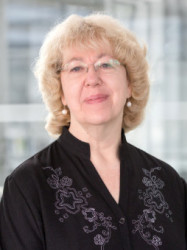BibTex format
@article{Martinez:2017:10.1186/s13287-017-0659-2,
author = {Martinez, VG and Ontoria-Oviedo, I and Ricardo, CP and Harding, SE and Sacedon, R and Varas, A and Zapata, A and Sepulveda, P and Vicente, A},
doi = {10.1186/s13287-017-0659-2},
journal = {Stem Cell Research and Therapy},
title = {Overexpression of hypoxia-inducible factor 1 alpha improves immunomodulation by dental mesenchymal stem cells},
url = {http://dx.doi.org/10.1186/s13287-017-0659-2},
volume = {8},
year = {2017}
}

